Abdulmoneam Ali
RCC-PFL: Robust Client Clustering under Noisy Labels in Personalized Federated Learning
Mar 25, 2025Abstract:We address the problem of cluster identity estimation in a personalized federated learning (PFL) setting in which users aim to learn different personal models. The backbone of effective learning in such a setting is to cluster users into groups whose objectives are similar. A typical approach in the literature is to achieve this by training users' data on different proposed personal models and assign them to groups based on which model achieves the lowest value of the users' loss functions. This process is to be done iteratively until group identities converge. A key challenge in such a setting arises when users have noisy labeled data, which may produce misleading values of their loss functions, and hence lead to ineffective clustering. To overcome this challenge, we propose a label-agnostic data similarity-based clustering algorithm, coined RCC-PFL, with three main advantages: the cluster identity estimation procedure is independent from the training labels; it is a one-shot clustering algorithm performed prior to the training; and it requires fewer communication rounds and less computation compared to iterative-based clustering methods. We validate our proposed algorithm using various models and datasets and show that it outperforms multiple baselines in terms of average accuracy and variance reduction.
Data Similarity-Based One-Shot Clustering for Multi-Task Hierarchical Federated Learning
Oct 03, 2024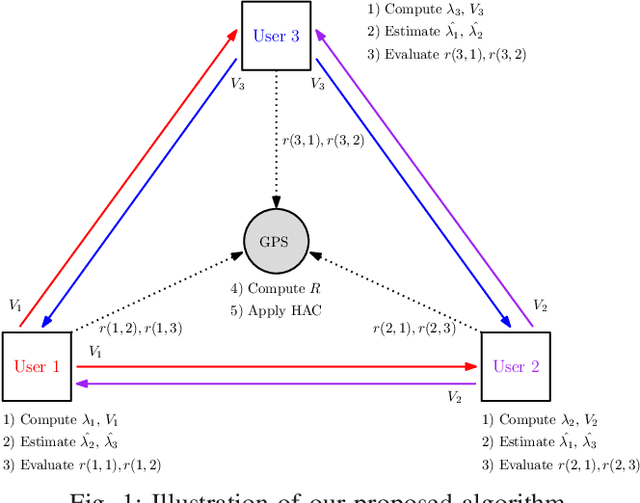
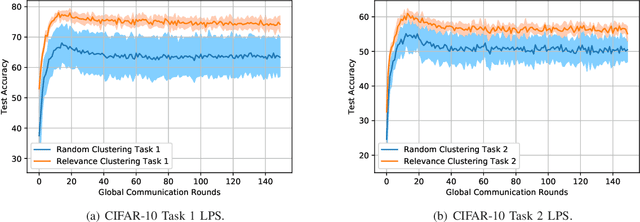

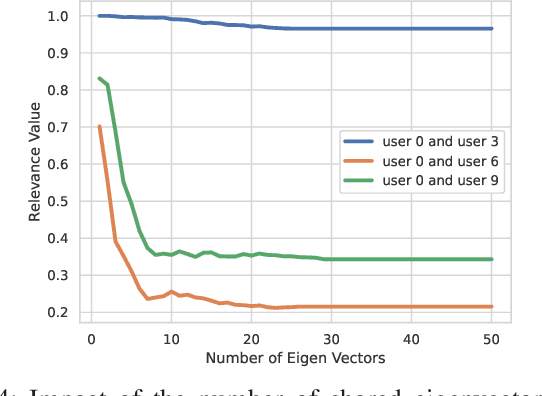
Abstract:We address the problem of cluster identity estimation in a hierarchical federated learning setting in which users work toward learning different tasks. To overcome the challenge of task heterogeneity, users need to be grouped in a way such that users with the same task are in the same group, conducting training together, while sharing the weights of feature extraction layers with the other groups. Toward that end, we propose a one-shot clustering algorithm that can effectively identify and group users based on their data similarity. This enables more efficient collaboration and sharing of a common layer representation within the federated learning system. Our proposed algorithm not only enhances the clustering process, but also overcomes challenges related to privacy concerns, communication overhead, and the need for prior knowledge about learning models or loss function behaviors. We validate our proposed algorithm using various datasets such as CIFAR-10 and Fashion MNIST, and show that it outperforms the baseline in terms of accuracy and variance reduction.
Delay Sensitive Hierarchical Federated Learning with Stochastic Local Updates
Feb 09, 2023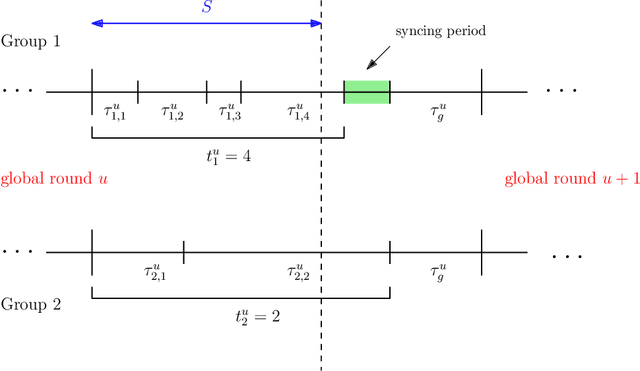
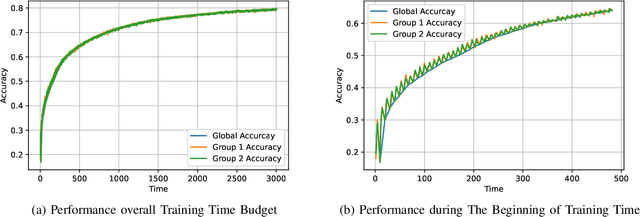
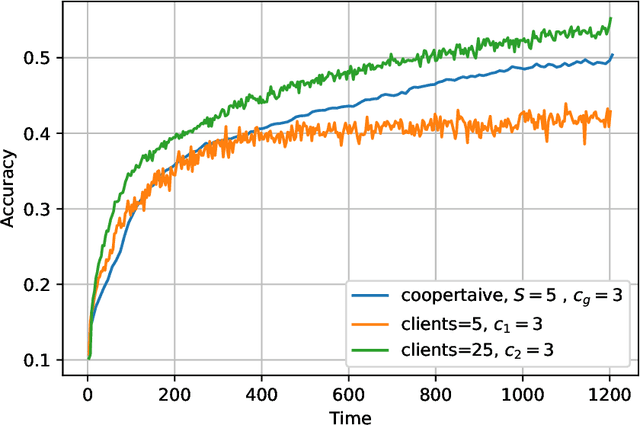
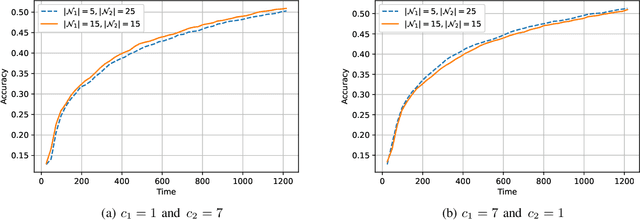
Abstract:The impact of local averaging on the performance of federated learning (FL) systems is studied in the presence of communication delay between the clients and the parameter server. To minimize the effect of delay, clients are assigned into different groups, each having its own local parameter server (LPS) that aggregates its clients' models. The groups' models are then aggregated at a global parameter server (GPS) that only communicates with the LPSs. Such setting is known as hierarchical FL (HFL). Different from most works in the literature, the number of local and global communication rounds in our work is randomly determined by the (different) delays experienced by each group of clients. Specifically, the number of local averaging rounds are tied to a wall-clock time period coined the sync time $S$, after which the LPSs synchronize their models by sharing them with the GPS. Such sync time $S$ is then reapplied until a global wall-clock time is exhausted.
 Add to Chrome
Add to Chrome Add to Firefox
Add to Firefox Add to Edge
Add to Edge